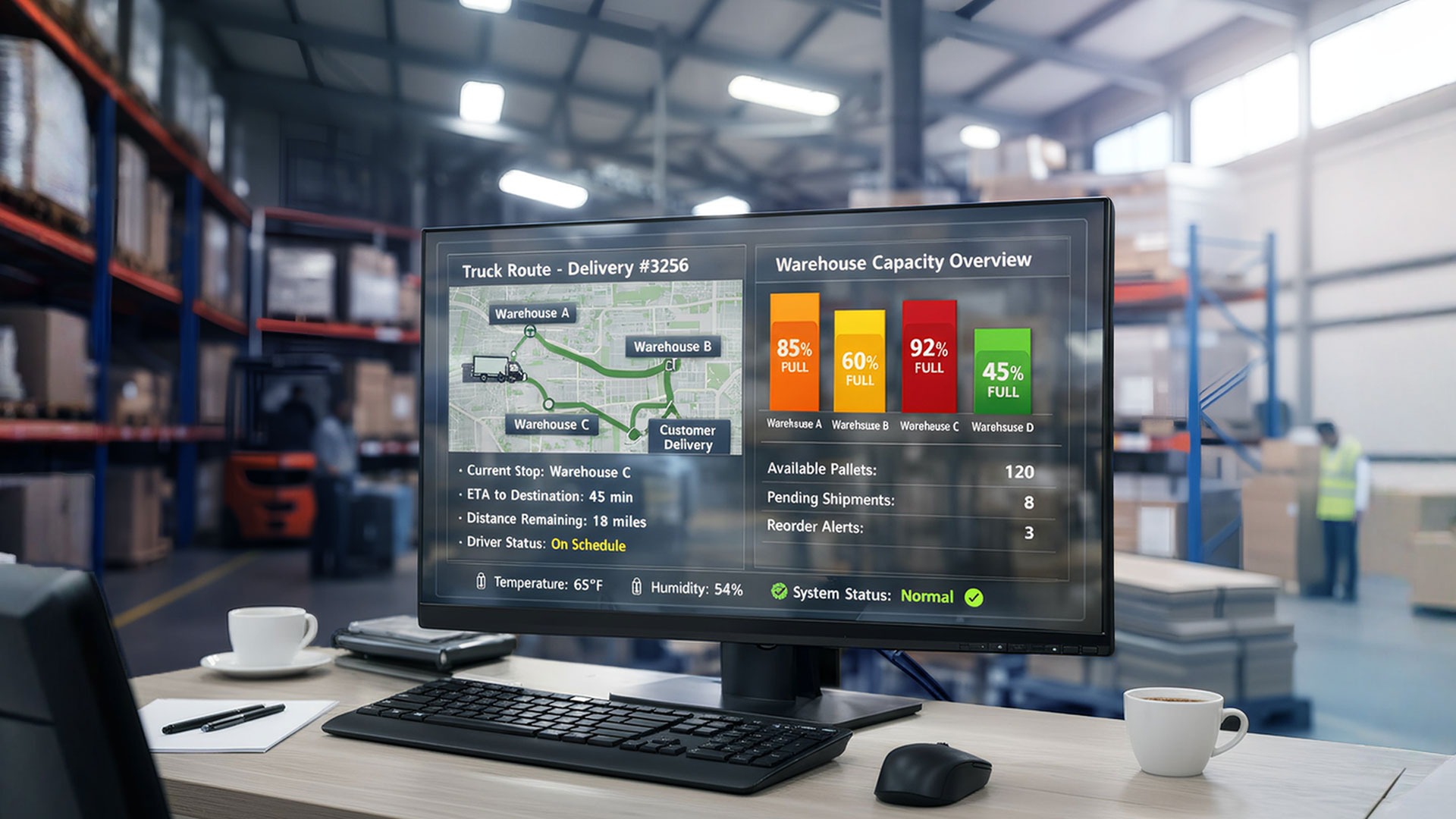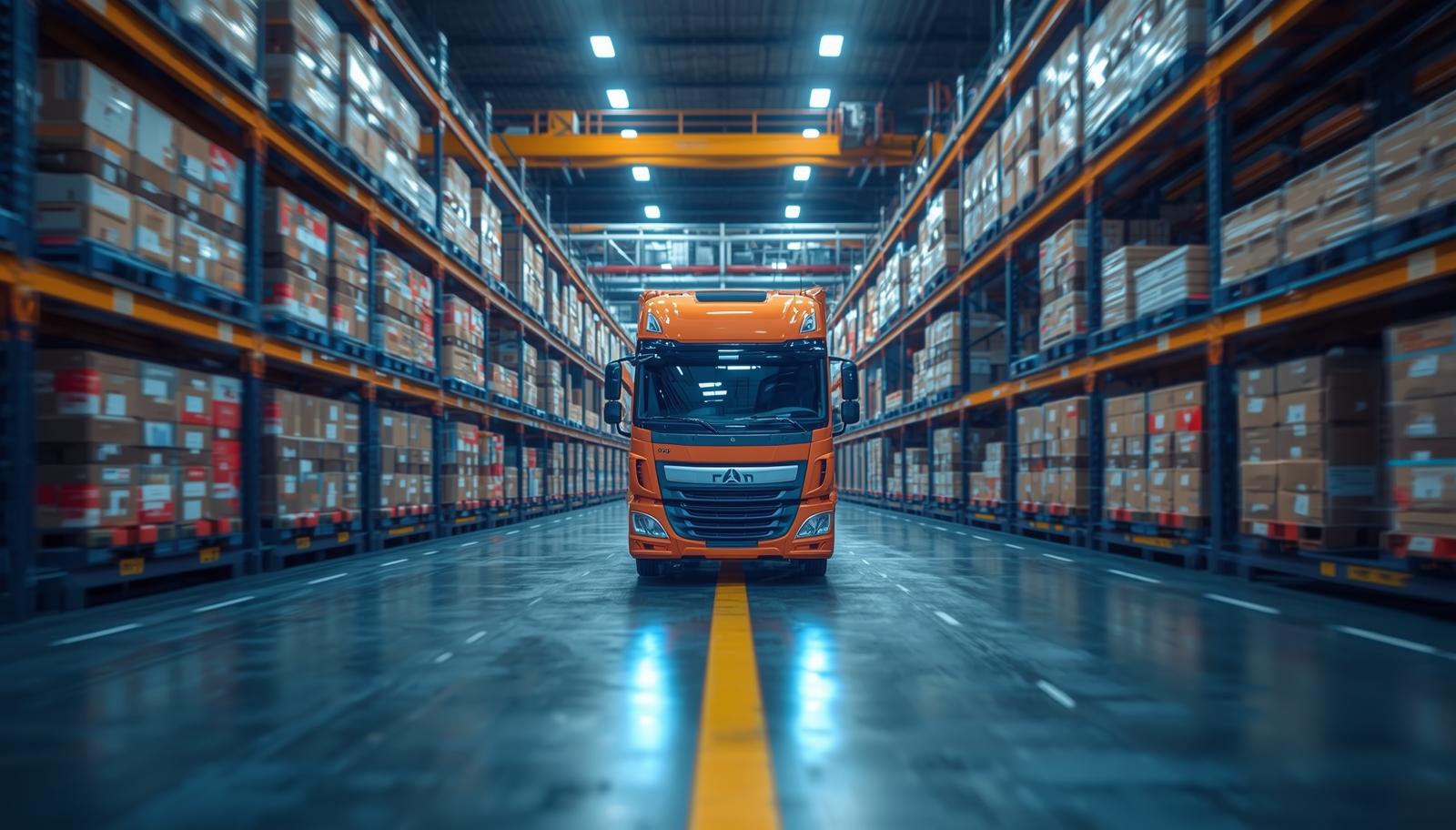
Imagine this scenario.
A massive petrochemical project in Jubail, Saudi Arabia, grinds to a halt.
The reason?
A critical shipment containing valves manufactured in South Korea is stuck in transit.
This logistic delay threatens to derail the project timeline, pushing back completion dates and incurring significant financial penalties.
While this particular story is fictional, the impact of this increasingly plausible scenario is not.
Nearly 30% of global trade passes through the Red Sea and Gulf of Aden. The Riyadh Gazette in 2022, characterizes the stark reality faced by businesses in Saudi Arabia: a rapidly growing economy grappling with inefficiencies in its vast land-based transportation network.
Vision 2030, the Kingdom’s bold national transformation program, hinges on a vast and sophisticated supply chain. The ambitious plan aims to diversify the Saudi economy beyond oil dependence, is aimed at fostering growth in sectors like manufacturing and e-commerce.
Given its strategic geographical location bridging three continents, the Kingdom has committed itself to making significant strides to bolster this sector as part of its Vision 2030, aiming to diversify the economy away from oil dependence and establish itself as a global logistics hub.
In this article we’ll discuss how efficient trucking can help facilitate Saudi Arabia’s economic vision and propel it toward a streamlined logistics solution in Saudi Arabia.
How Inefficient Trucking Hinders Saudi Arabia’s Supply Chain
According to the World Bank’s Logistics Performance Index, Saudi Arabia ranks at 3.4 out of 5. The Index measures factors such as the competence and quality of logistics services, the ease of arranging competitively priced shipments, the frequency with which shipments reach the consignee within expected timeframes, the ability to track and trace consignments, among other factors.
Here’s a closer look at the problems that arise from traditional trucking practices:
- Delayed Deliveries and Lost Revenue: Congestion on Saudi Arabia’s limited highways leads to delays in transporting goods. Limited highway capacity across the vast desert kingdom leads to congestion, causing prolonged delays for international shipments, translating to lost revenue for businesses and frustrated customers.
- Rising Fuel Costs: Diesel trucking contributes heavily to operational costs. Fluctuations in oil prices create uncertainty, and the distances traveled within Saudi Arabia further exacerbate fuel consumption. These high costs can be passed on to consumers, impacting the affordability of goods.
- Labor Shortages and Safety Concerns: Saudi Arabia is not immune to the global phenomenon of a shortage of qualified truck drivers. The shortage of qualified drivers in Saudi Arabia can lead to overworked and fatigued individuals behind the wheel, increasing the risk of accidents. Like most countries, truck-related accidents account for a significant portion of all road fatalities. This not only leads to the tragic loss of life and limb, but also leads to further delays and disruptions in the supply chain.
While Saudi Arabia ranks better than many countries on the World Bank’s Logistics Performance Index, it still has considerable potential. Fortunately, advancements in supply chain technology provide viable pathways to efficiency.
Enter the AI Revolution: How Efficient Trucking Drives Success
Efficient trucking is one of the most viable solutions to Saudi Arabia’s logistics challenges. Adopting AI can help transform logistics operations – allowing trucks to navigate congested roads with precision, optimizing routes for greater speed and efficiency. AI-assisted predictive fleet maintenance can help prevent breakdowns before they happen – all without making heavy infrastructure investments in roads and bridges.
AI is rapidly transforming the global logistics landscape, and Saudi Arabia is poised to become a leader in this revolution. By leveraging AI-powered trucking solutions, businesses can overcome the challenges plaguing their supply chains and unlock a new era of efficiency, cost savings, and sustainability.
Below are some ways that AI is transforming the trucking landscape:
- Route Optimization with AI: Imagine a truck driver navigating a network of congested roads with pinpoint accuracy. AI algorithms can analyze historical traffic patterns, weather conditions, and real-time data to create dynamic, fuel-efficient routes. This not only reduces travel time and delays but also minimizes fuel consumption. AI-powered route optimization has been proven to yield a 10-20% reduction in fuel costs for trucking companies.
- Predictive Maintenance with AI: Unexpected vehicle breakdowns cause inevitable delays in supply chains. AI can analyze fleet data and predict mechanical malfunctions before they occur. The Internet of Things (IoT) feeds data into machine learning systems, providing the data needed to make preemptive maintenance decisions. AI-powered predictive maintenance systems will result in a significant reduction in unplanned repairs and improved vehicle uptime.
- Enhanced Safety with AI: Advanced Driver-Assistance Systems (ADAS) powered by AI can significantly improve road safety. Features like lane departure warnings, collision avoidance systems, and driver drowsiness detection are already part of many consumer vehicles and can act as a guardian angel for truck drivers, reducing accidents and saving lives. These and other safety features can reduce the risk of crashes by up to 80%
Leading countries and companies are embracing AI in their supply chain operations. For example, the European Union’s (EU) focus on sustainable logistics has led to the adoption of AI-powered route optimization and alternative fuel options for trucks. Hybrid supply chain measures including the use of barges and trains are slated to produce a 40% decrease in environmental harm. The EU is also issuing an objective of lowering transportation costs by 10% over the next seven years. Technology will play a key role in hitting these targets.
Major logistics companies like FedEx and UPS are actively implementing AI solutions to optimize their operations. For example, FedEx’s SenseAwareID device transmits its location every two seconds to help with package tracking. This move, and others, are helping the company realize full real-time tracking of all packages for its customers.
These are some successes that Saudi Arabian supply chain entities can imbibe into their operations. Through AI-powered route planning and dynamic scheduling, Saudi companies can achieve significant improvements in delivery times and overall efficiency.
“Future-Proofing” the Saudi Supply Chain
The power of AI to revolutionize global supply chains is undeniable. To fully unlock its benefits and achieve a future-proof supply chain, Saudi Arabia can take a multi-pronged approach:
- Invest in Infrastructure: AI can optimize routes on existing roads, but long-term solutions demand significant infrastructure development. Expanding highway capacity, implementing smart traffic management systems, and adopting alternative transport modalities like high-speed rail can significantly improve efficiency and reduce congestion.
- Embrace Public-Private Partnerships: Modernizing Saudi Arabia’s logistics sector will require heavy investment. Public-Private Partnerships (PPPs) are an opportunity to leverage capital and skills from the private sector to fund infrastructure projects and develop more agile supply chain solutions.
- Upskilling the Workforce: While AI won’t entirely replace truck drivers, drivers will need to develop new skill sets to remain competitive. Training programs focused on data analysis, AI adoption, and operating AI-powered logistics systems are crucial for a smooth transition.
- Standardization and Regulations: Regulations and standardization are a natural byproduct of the rapid adoption of any technology – especially AI. Saudi Arabian logistics firms will benefit from studying regulations of other countries and preparing themselves for similar measures in the Kingdom – albeit without labor unions and tight environmental restrictions found in other countries.
Saudi Arabia can build a future-proof supply chain powered by technology and a keen understanding of the country’s unique supply chain challenges. This will not only unlock economic growth but also position the Kingdom as a leader in sustainable and efficient logistics within the region.
Conclusion
Saudi Arabia finds itself in a proverbial desert of potential. Efficient trucks, financed by their private sector owners, will soon navigate a digital landscape that ensures on-time deliveries, reduces costs, and propels Saudi Arabia towards an even more dynamic role in global trade. Saudi Arabia can unlock the potential of its growing economy with innovation and resolve – entrenching itself as a growing logistics powerhouse.
About Wahyd Logistics
Learn more about Wahyd Logistics technology-enabled logistics marketplace here. Allowing you to book, track, and manage your shipments with the touch of a button, our transparent, end-to-end logistics management solution caters to a number of industries worldwide.






